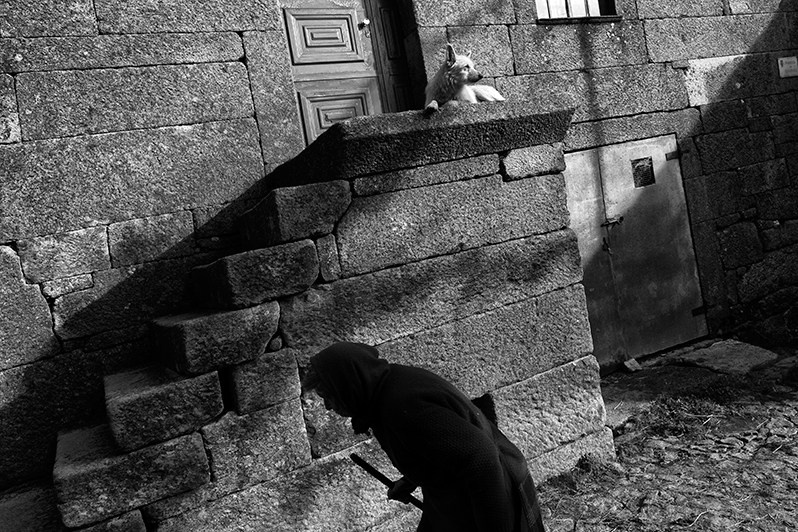Выравнивание текста
Secular rituals whose origins are pre-Christian, these festivals are celebrated mainly in some villages in the District of Bragança in the so-called 12-day cycle, which runs between the 25th of December (Christmas) and the 6th of January (Twelfth Day), on Carnival Tuesday and Ash Wednesday.
Usually masked and without revealing their identities, the boys' behavior is profoundly altered, taking advantage, at the same time, of the magical powers that are conferred on them by the simple use of the mask (there are reports of boys who claim that when they are masked they feel supernatural powers, such as abundant strength and even the absence of pain and fatigue).
If in the past only single boys could transfigure themselves and incarnate these fantastic characters, usually known as “Caretos”, “Caretas”, “Máscaros”, “Carochos”, “Chocalheiros”, “Velhos”, among others, nowadays, as a result of lack of population, some villages now allow married boys, older men and even women to play this role.
Accompanied by traditional music, the overwhelming majority of which are bagpipes, the Ronda or Peditório, a visit by the main participants of the festival to all the houses in the villages in order to celebrate the Happy Holidays and ask for “Alms”, it involves all its inhabitants, being It is common to light huge bonfires not only to combat the cold, but also as an act of purification and ward off evil.
In the 12-day cycle, it is also common for these Festivals to be associated with religious celebrations, mainly with the cult of “Santo Estêvão”, but also the “Menino Jesus”, and it is common for villagers to offer as “alms” chorizos, bread “roscas”, sweets, bottles of drinks and money. Sometimes these offerings are divided into two parts in a mix between sacred and profane: one part is intended for “Santo Estêvão” or the “Menino Jesus”, and another part for the organization of the Festival and its protagonists, namely the masked people.
At a time of year when the overwhelming majority of the Portuguese population is at home celebrating Christmas and New Year's Eve, people from Trás-os-Montes take to the streets of their villages in a secular and identity celebration that has no parallel in Portuguese popular culture.
Paulo Nunes 2023


















































































































